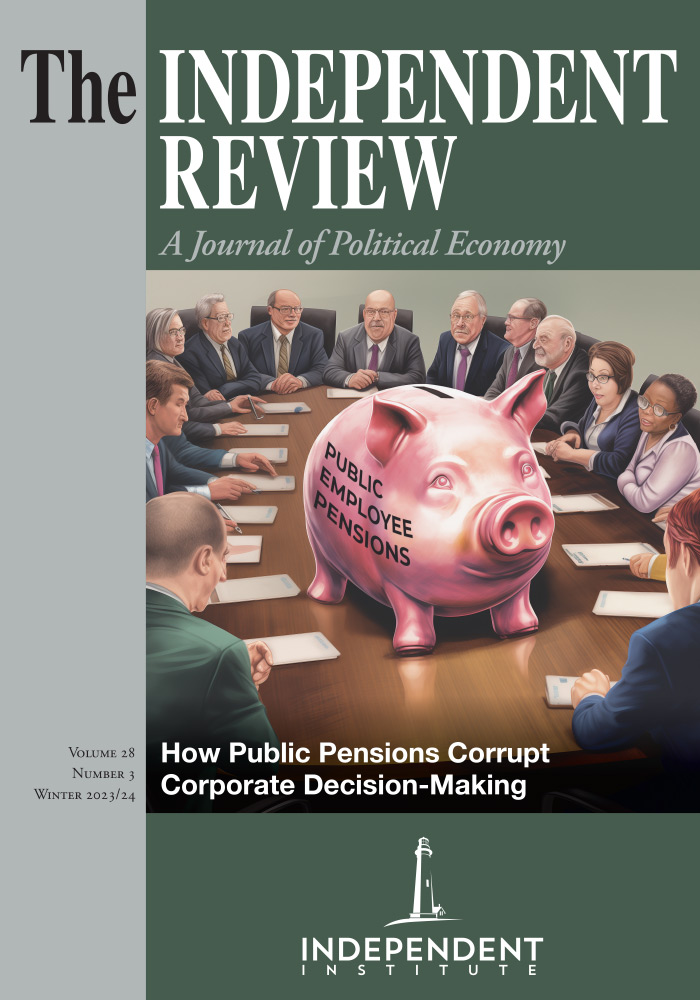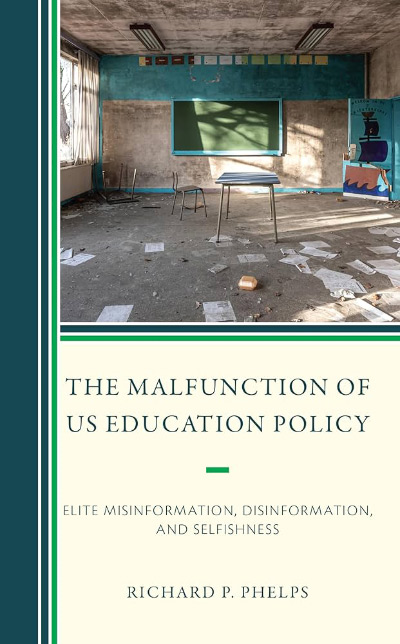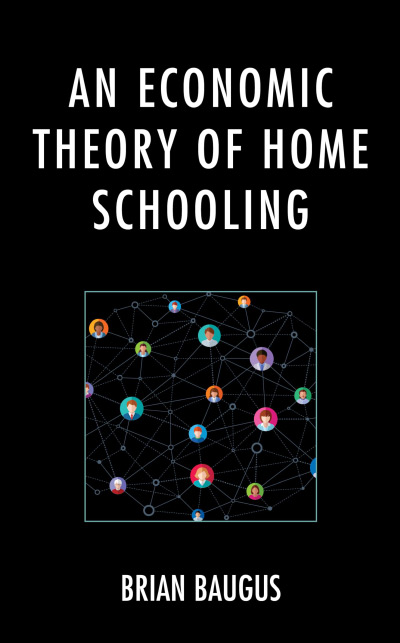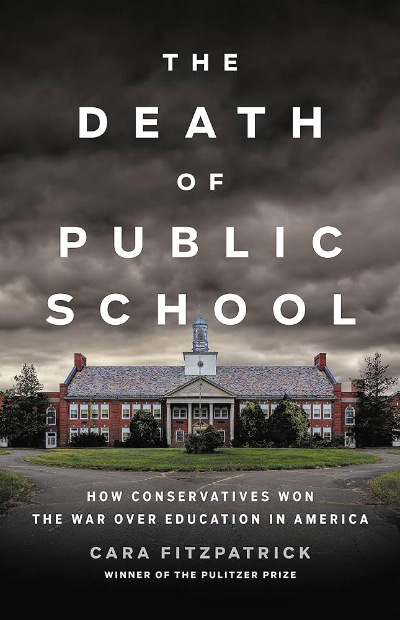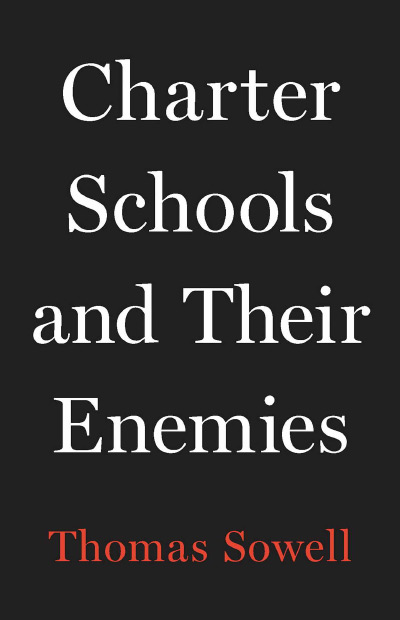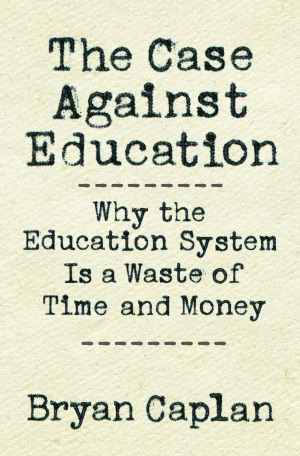The Malfunction of U.S. Education Policy is not just a must-read for education scholars and policy folks. Elite capture of an information base for policymaking is something that could happen to any body of knowledge, and it likely is ongoing in many more knowledge areas than we realize. Elite capture can occur without a brilliant analysis as a starting point, but it’s not good even when prominence arises from a brilliant analysis. Richard Phelps uses a massive literature review to credibly assert the existence of an Education Establishment Cartel and an Education Reform Cartel and he demonstrates that such information base cartels are stable. Economic goods cartels are much less stable. They are typically emasculated by market entry and cheating, which means not adhering to what was agreed to. Information base cartels don’t need formal agreements.
Phelps’s Preface begins with a brilliant line: “I work to protect endangered theses;” to prevent knowledge loss (p. ix). Throughout the book he asserts a strong case that prominent researchers throughout education policy research are ignoring/dismissing (not just overlooking) large bodies of relevant work. He names the most prominent perpetrators—organizations as well as key people. Phelps provides more detailed information in several online appendices.
He coins the terms celebrity scholar and strategic scholar—an oxymoron—to denote people that have been induced by the opiate of fame to ignore rivals, to prefer quantity produced to research quality, and to perhaps ignore/dismiss more knowledge than they create.
The key ingredients of information cartelization and consequent information loss and tunnel vision are credentialitis, self-interest, time scarcity, and pressure to publish. Policymakers, academic scholars, and journalists must pay attention to widely discussed information from highly credentialed sources and people. That can be a function of the kind of outreach effort that elite institutions such as Harvard and Stanford can readily muster, rather than research quality. Faced with extreme time scarcity, and the pressure to publish or perish, policymakers, academic scholars, and journalists are under pressure to ignore non-mainstream findings and recommendations. A strong incentive to ignore, denigrate, and recklessly overlook much past work is that such behavior reinforces a perception of current, high-profile scholars as pioneers. Phelps calls it asserting “firstness.”
Phelps notes that with their huge endowments, institutions such as Harvard and Stanford can effectively assert the expertise of new programs. The geographic spread of graduates of those programs creates an echo chamber that reinforces the outreach and marketing efforts of the well-resourced programs housed in elite institutions.
Widely discussed material cannot be high quality once the highly credentialed and even weakly credentialed elite sources feel empowered to ignore (cancel) the scholars and works outside their network. As Phelps repeatedly notes, self-interest-driven dismissal and denigration of inconvenient truths yields weaker, perhaps counter-productive policies. That’s something we can least afford in policymaking for K-12 schools, where we are at least as “at risk” as we were in 1983 when a National Commission coined the “Nation at Risk” term. In his chapters comparing the condition of education in 2001 and 2023, Phelps points out that education research and policymaking is unique in its failure to show significant progress. Indeed, the U.S. now spends much more for little-changed schooling outcomes, especially in Phelps’s area of expertise of testing where it is has become unusual for tests to motivate students to study or maximize their test performance.
Given the stakes in education policymaking, and elsewhere, what should we do, privately or through the government, to hold information deniers accountable, and to assert valuable, overlooked and dismissed bodies of knowledge?
Increased digitization of “endangered theses” will help, but at the core of most persistent problems are perverse incentives. Perhaps we can learn from the instability of economic cartels. Their history tells us that we need to incentivize a) “cheating” by cartel members; b) increased production by non-members; and c) market entry by outsiders. In this context, cheating means exposing dismissive reviews, and citing the work of cartel outsiders. Exposure of shoddy work, and its consequences, will foster market entry. Some professional associations will find that a “predatory bureaucracy” is an essential element of a declaration of higher professional standards. Certainly, some charitable foundations should prioritize funding professional accountability and the rescue of endangered theses.
Some progress against low quality and fake scholarship is evident. As shown in a recent Wall Street Journal article and the existence of Econ Journal Watch. Let’s build on that. Certainly, the Institute for Objective Policy Assessment will aim to be part of that effort.
| Other Independent Review articles by John D. Merrifield | ||
| Spring 2024 | The Death of Public School: How Conservatives Won the War over Education in America | |
| Fall 2016 | Swedish and Swiss Fiscal-Rule Outcomes Contain Key Lessons for the United States | |
| Fall 2006 | Choice and Competition in American Education | |
| [View All (5)] | ||

